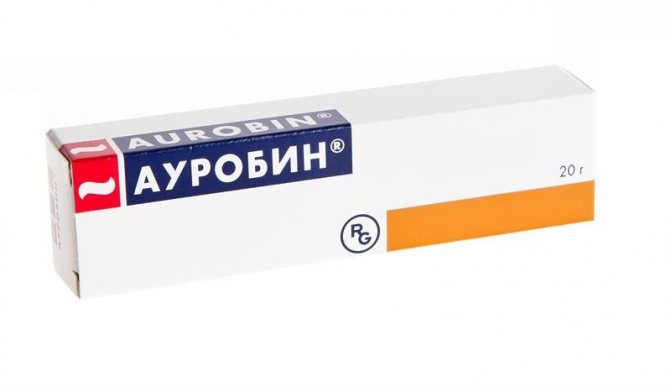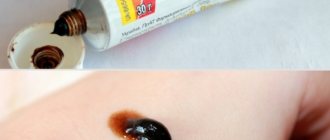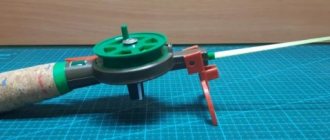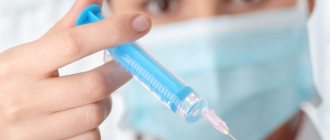Heparin ointment
This remedy is ideal for treating the rectum in such special patients. Heparin ointment for hemorrhoids acts carefully and gently. The drug will very quickly remove inflammatory processes in the anal area and, accordingly, the pain symptom will go away with the inflammation. If the disease has already developed, and hemorrhoidal bumps are observed around the rectum, then Heparin ointment promotes their resorption, which allows the nodes to decrease in size in a short time. Heparin ointment can also be used during lactation. The components of the product do not enter the patient’s blood, which means that Heparin ointment will not harm the child. Heparin ointment is applied directly to the nodes themselves twice a day and only to a clean area. If the drug is used during the development of the disease - in the first and second stages, a complete cure of the disease can be achieved.
Heparin ointment during pregnancy and lactation: can it be used, instructions for use
During pregnancy and breastfeeding, most drugs are prohibited. Let's find out whether heparin ointment is safe for pregnant women. In what cases can it be used, and when should it be abandoned?
Can the ointment be used during pregnancy and breastfeeding?
In this case, any medications can be used if the benefit to the mother outweighs the risk to the child.
To figure out whether a drug is safe for pregnant and lactating women, you need to know about the mechanism of its action.
The ointment contains 3 main components:
- Heparin. This is the active substance. It prevents platelets from sticking together, so it helps prevent thrombosis. Heparin also has an anti-edematous and anti-inflammatory effect.
- Benzyl nicotinate. The substance improves the effect of heparin and also dilates blood vessels.
- Benzocaine. Has an analgesic effect.
The ointment has anti-inflammatory, anticoagulant and antithrombic effects. It prevents blood clots and helps get rid of external hemorrhoids.
So can heparin ointment be used for women who are carrying or nursing a child? The instructions do not indicate that heparin ointment is prohibited during pregnancy or breastfeeding, but you still cannot self-medicate. Therapy should be carried out only under the supervision of a doctor, because the baby’s health is at stake.
For hemorrhoids and other venous diseases, there are other remedies that are allowed during lactation. They are produced in the form of suppositories and ointments, but it is the latter form of release that is the safest for hepatitis B.
There are no allergenic components in the composition of heparin ointment. When applied topically, heparin is practically not absorbed into the blood. It does not penetrate the placenta or into breast milk, so nursing mothers do not have to worry about the health of their baby.
Heparin ointment gives a quick effect and does not contain aggressive substances, but is not suitable for the treatment of advanced forms of hemorrhoids or varicose veins.
In the absence of contraindications, heparin ointment during lactation is one of the safest remedies for hemorrhoids.
Indications and contraindications
The body of a pregnant woman is subject to serious stress, in particular, the cardiovascular system and veins suffer. Hemorrhoids and varicose veins are one of the most common diseases in pregnant women.
Heparin ointment during pregnancy is prescribed for dilation of superficial veins.
For pregnant and nursing mothers, the ointment can be used not only for treatment, but also for prevention.
Heparin ointment during pregnancy should be used for the following problems:
- blockage, inflammation of veins and lymphatic vessels;
- thrombophlebitis and thrombosis;
- varicose veins;
- injuries that are accompanied by hemorrhage;
- postpartum hemorrhoids.
When breastfeeding, you can use heparin ointment if the mammary glands are inflamed.
The drug also helps with stretch marks on the abdomen and thighs, which appear in most women when carrying a child. The ointment can be used to prevent them. If stretch marks have already appeared, then the cream will make them less noticeable.
Heparin ointment during pregnancy is contraindicated in the following cases:
- individual intolerance to the components of the drug;
- ulcers and purulent wounds in the vascular area;
- blood clotting disorder;
- low level of platelets in the blood.
Instructions
The drug is intended for external use. Its use depends on the disease.
Instructions for use look like this:
- Varicose veins or thrombophlebitis. The ointment should be applied to the area of varicose veins 2-3 times a day with a strip 3-5 cm long. Do not rub or press hard into the skin. All movements should be light. After applying the cream, the pain decreases, the burning sensation goes away and the swelling is relieved.
- Hemorrhoids. The ointment should be applied to the tampon and spread in an even, thin layer. Then insert the tampon into the rectum. This procedure should be done before bedtime. You need to leave the tampon on all night. For external hemorrhoids, they need to be treated with the product. This procedure should be repeated after each bowel movement. The ointment is suitable for the prevention of thrombosis of hemorrhoidal veins and the treatment of hemorrhoids. In 10-14 procedures you can get rid of the disease; a longer course of treatment is prohibited, as side effects may develop.
If you start treatment at the initial stages of the disease, then complete recovery is guaranteed.
Side effects
The drug is not always used as prescribed by the doctor. Uncontrolled treatment leads to the development of side effects such as urticaria, redness of the skin, allergic rash, swelling and itching.
If the above reactions occur, then use of the drug should be stopped immediately and go to the hospital. The doctor will prescribe another remedy.
Very rarely, more severe manifestations develop in the form of ulcerative-necrotic changes in the skin, deterioration of blood clotting and a decrease in the number of platelets in the plasma.
When taking anticoagulants for a long time, such as heparin ointment, it is necessary to monitor blood clotting parameters.
Gaparin-based products are safe to feed, but they must be used as directed by your doctor.
Analogs
Heparin ointment is inexpensive. A 25 g tube can be purchased for 54-78 rubles. The cost depends on the manufacturer of the product.
There are analogue drugs that can be used during pregnancy and lactation.
Name of the drug Active substance Application
| Heparin Combi | Heparin sodium | If the benefit to the mother outweighs the risk to the fetus |
| Venitan Forte | ||
| Lavenum | ||
| Trombless | ||
| Lyoton | ||
| Troxevasin | Troxerutin | Prohibited in the first trimester of pregnancy |
| Hepatrombin | Heparin sodium |
Most of these drugs come in ointment and gel forms. The differences between these two forms are that the gel penetrates the skin faster, so it acts immediately. The effect of using the ointment occurs after a while, but the effect is longer.
Heparin ointment has many advantages over other anticoagulants, but during pregnancy and lactation it should be used with caution. Exceeding the dosage can lead to serious consequences. Consultation with a doctor is required.
Oksana Belokur, doctor, specially for xVarikoz.ru
about the treatment of varicose veins during pregnancy
Source: https://xvarikoz.ru/preparaty/mazi-krema-i-geli/geparinovaya-maz-pri-beremennosti.html
Vishnevsky ointment
The drug is considered safe for both babies and mothers. Vishnevsky ointment removes inflammatory processes and pain symptoms, quickly alleviating the patient’s general condition. Vishnevsky ointment consists of natural ingredients: tar, castor oil and xeroform. The invention of the ointment belongs to the famous surgeon Vishnevsky, whose surname became the name of Vishnevsky ointment. The drug is distinguished by a sharp, unusual odor. The main purpose of Vishnevsky's ointment is to fight microbes in the affected area; Vishnevsky's remedy also helps to normalize blood flow in the veins, which is very important for hemorrhoids. The ointment is absorbed well and begins to act.
Another feature of Vishnevsky’s ointment was its ability to restore damaged tissues and help cell regeneration.
Treatment with ointment can be started for inflammatory processes in the rectal area only after sitz baths of potassium permanganate, which must be used within two days after the onset of the inflammatory process. On the third day, you can spread Vishnevsky ointment on a piece of bandage and apply it to the affected area. Treatment is carried out three times a day for one and a half hours. In case of severe pain, additional painkillers must be taken. Breastfeeding also involves treating hemorrhoids with this remedy.
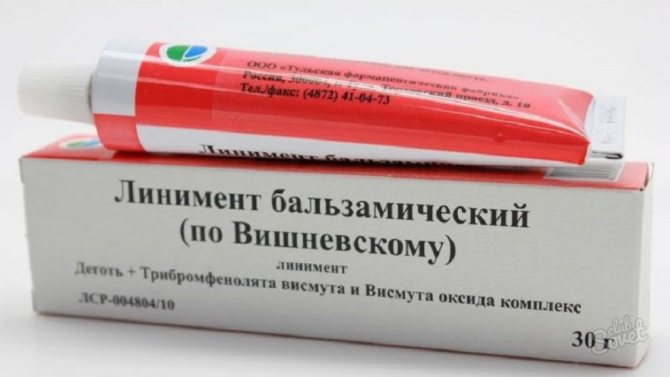
Five best ointments during lactation
Despite the fact that the list of drugs against hemorrhoids includes a huge number of items, nevertheless, it is worth highlighting only the most popular of them, which have managed to prove themselves only from the best side.
Heparin ointment
A completely safe and effective remedy that helps relieve inflammation, reduce burning and itching. With regular use of the product, hemorrhoids resolve quickly enough. In some cases, the drug may cause a slight burning and tingling sensation, which gradually disappears. Despite the fact that the product is allowed to be used during lactation, it is nevertheless worth making sure that there is no individual intolerance. Apply ointment for hemorrhoids for nursing mothers twice a day, morning and evening. It is advisable to resort to a course of treatment, which averages 7-10 days.
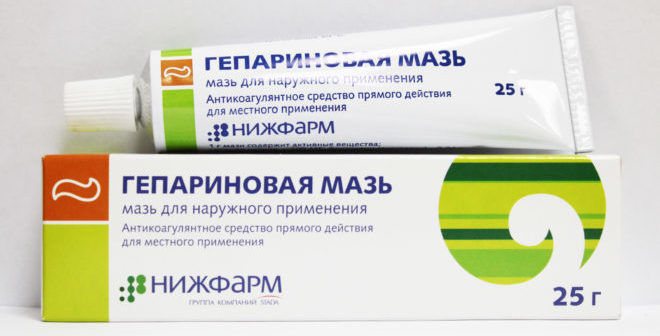
Vishnevsky ointment
Despite the fact that the drug was not originally created as a special remedy for hemorrhoids, it nevertheless has pronounced effectiveness against hemorrhoids. This is a natural product that is made on the basis of birch tar, xeroform and castor oil. Due to its natural composition, the ointment perfectly disinfects and dries out inflammation without causing any harm to the body. It can be used both to lubricate the nodes directly and to prepare wound-healing compresses for bleeding cones.
Levomekol
The presented ointment for hemorrhoids during breastfeeding is indispensable in cases where the inflammatory process in the hemorrhoids grows so strongly that it begins to affect the surrounding tissues. In addition, Levomekol can be called the best choice in case of purulent processes. This antibiotic-based ointment is used to prepare medicinal compresses, and it is also used to lubricate hemorrhoids 2-3 times a day.
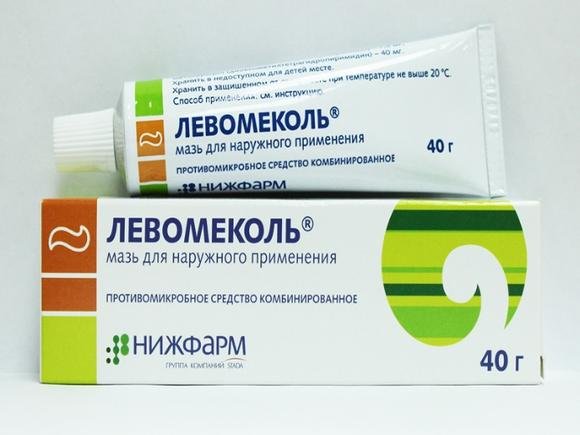
Bezornil
The ointment is made on the basis of petroleum jelly and lanolin with the addition of active ingredients. This is a completely safe drug except in cases of individual intolerance. Bezornil is quite effective, due to which the foci of inflammation become significantly smaller already on the 2nd day of therapy. The product also relieves pain and itching well, helping to normalize the condition of the rectal mucosa. The presented drug combines well with other antihemorrhoids and can be used in complex treatment.
Ichthyol ointment
Another natural remedy that has an anti-inflammatory and wound-healing effect. Ichthyol ointment very quickly relieves itching, burning, and also improves the natural immunity of the intestinal mucosa. The product is suitable for compresses, lotions and normal use according to the instructions. The only drawback of the drug is the unpleasant odor, which is similar to the smell of tar.
"Relief" and "Relief Advance" and "Relief Ultra"
“Relief” consists of natural products – phenylephrine and shark liver oil. Such components of Relief products quickly cope with bleeding from the rectum, have a beneficial effect on the vessels of the rectal area and eliminate inflammation of the anus. “Relief” also regenerates tissue and relieves the patient from the unpleasant symptoms of hemorrhoids - burning and annoying itching.
The manufacturer offers several varieties of “Relief”. These are “Relief” and “Relief Advance” candles, “Relief Ultra” candles and “Relief” ointment. As a rule, pregnant patients and young mothers are prescribed Relief suppositories or ointment. They are the safest due to their natural composition. For severe pain symptoms, Relief Advance may be prescribed. But “Relief Ultra” also contains a hormonal component – hydrocortisone. It is this component in Relief Ultra that can negatively affect the course of pregnancy. Be careful when purchasing the drug and look at the packaging, which should not contain the words “Relief Ultra”.
Apply ointment for hemorrhoids only on a clean area; this should be done in the morning and at night. Also, the drug should be applied after each act of defecation, up to 4 times a day. The ointment is administered inside the rectum using the applicator that comes in the package.
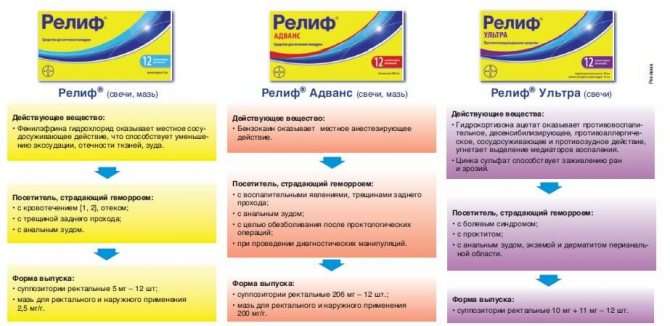
"Aurobin"
This is a synthetic product based on components such as prednisolone, triclosan, lidocaine, D-panthenol. After the first use, Aurobin ointment brings visible relief, relieving the patient of pain. The components of "Aurobin" restore the affected tissue, fight swelling of the rectal area, kill microorganisms and relieve inflammation. Also, “Aurobin” has an excellent effect on the condition of the walls of blood vessels. Typically, Aurobin is prescribed for prolapse and inflammation of hemorrhoidal cones. “Aurobin” is also relevant for dermatitis, eczema and anal fissures.
Aurobin can only be used externally two to four times a day. The product is applied directly to the affected area or injected into the rectum with an applicator. Aurobin can be used by pregnant women, but not in the first three months of pregnancy. A nursing mother can also use this ointment to treat hemorrhoids.
